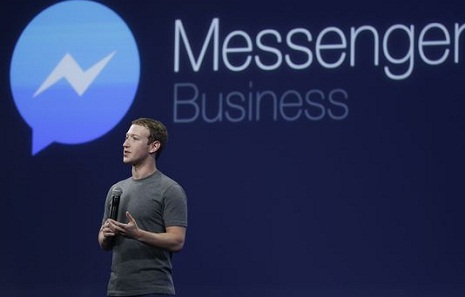At the end of what promises to be a lengthy process, the EU can either fine the company or -- worse yet for Google -- exclude it from other European Internet markets besides search.
Those include helping consumers find hotels, restaurants, plane tickets, home services or friends on the fly.
Ads alongside these mobile, real-time recommendations are growing sharply as new wireless technologies pair consumer data with location information.
In the U.S., for example, mobile advertising grew a whopping 76% in the first half of last year, to $5.3 billion, according to an October report from the Interactive Advertising Bureau.
That was 23% of the total and, given the spending trends of the last two years, mobile will likely represent between a quarter and a third of all digital ad spending this year.
Capturing a large share of the European market for mobile ads would boost growth in coming years at Google.
Its sales are seen rising 17% this year, to $66 billion, and 18% in 2016.
The Mountain View, Calif.-based company controls roughly 90% of the market for search advertising in Europe (versus a 64% share of the U.S. market.)
Now, however, the EU`s anti-trust enforcer looks keen to rein in Google`s plans to expand out from its dominant base into other online services.
But if Google (GOOG) shareholders are worried about Vestager, they haven`t shown it, as the stock has continued to climb higher even after news of the EU charges against the company.
Maybe that`s because Google has shrugged off past regulatory actions, both in Europe and the U.S., by paying fines it can easily afford and moving on to more markets.
It`s also early enough in the process -- Google will now have a chance to respond to the charges -- that no one knows what monetary damage any future regulatory sanctions might cost the company.
Or maybe it`s because Facebook (FB), not the EU, is a bigger threat to Google, something investors will be reminded of when both companies report results next week.
Facebook`s sales this year are expected to rise 38%, to $17 billion.
That makes the social media about a quarter as big as the search giant, even as it grows twice as fast.
Like Google, Facebook is using a combination of personal and location data to sell more mobile ads.
Earlier this year, it began rolling out a new service for advertisers that lets them target its 1.3 billion (and counting) users not only on its own application but on other Web sites as well.
Unlike Google, Facebook gets the majority of its ad revenue from mobile users, rather than desktop ones.
And unlike Google, average ad prices on Facebook are rising, not falling.
That puts Facebook in position to capture a leading share of new business as online marketers follow users off of PCs and onto smartphones and tablets.
More detail on both companies` mobile efforts is coming very soon, as Facebook reports on April 22 and Google on April 23.
Once the management teams of both companies share their latest plans and forecasts, investors can better assess whether Zuckerberg and Facebook, rather than Vestager and the EU, remain a bigger threat to Google`s growth.
More about:
















































